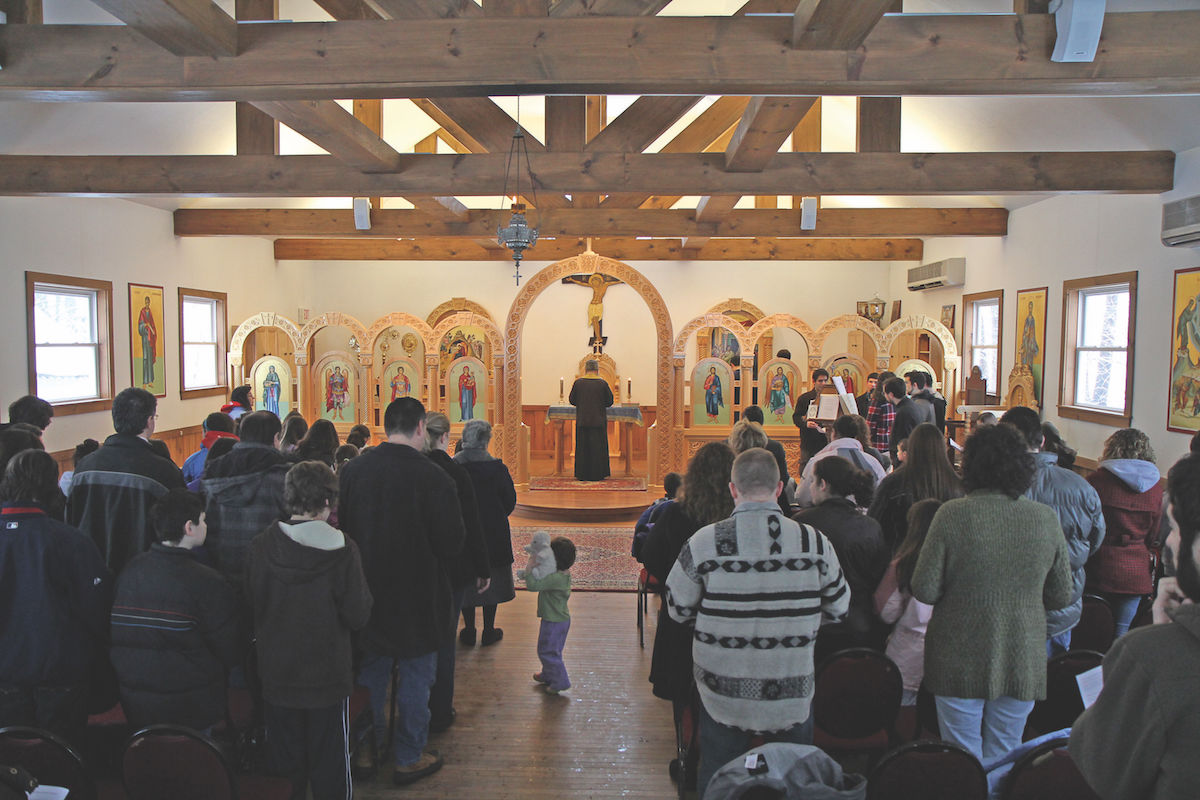It’s Sunday morning and the alarm sounds. You are tired because you and your spouse arrived home late from a wedding last night. You roll over and hit the snooze button hoping for a few more minutes of rest, but the children are already up and watching a cartoon on the television.
You think, “Oh, no, now I am going to have to drag them away from the TV.” You start getting dressed and your son can’t find one of his shoes. You think, “Why does this always happen on Sunday mornings?”
You hear a loud thud, and then the children are yelling and you think, “Oh, brother, it’s going to be one of those days!”
Sadly, by the time you reach church, everyone is frazzled and angry. As you and your family walk into the narthex, you hear the Lord’s Prayer and you feel embarrassed for being so late.
Going to church has become a challenge for your family. You never imagined that this would happen. It seems more often than not the above scenario–or a close variation of it–plays out each Sunday morning. How in the world can you avoid this?
As parents, we want our children to learn about and love God. For Orthodox Christians, an important part of this learning process is regular church attendance.
When we incorporate consistent church participation into our lives, our children experience the faith and love of God through community worship and the Church’s sacraments.
This process is twofold: learning about God helps us love God, and loving God makes us want to know Him more.
Developing a loving relationship between your family and God should be a daily goal.
Relationships can’t be maintained, and certainly can’t grow, with sporadic interactions. Here are some simple suggestions for weaving church life into your daily life at home:
Around the Table
Communication is vital to relationships. One of the best times to communicate as a family is around the dinner table. Start with a prayer of thanks and then take time to listen to each of your children as they share their day.
It is amazing how much learning can take place as parents listen to their children.
Here is also your opportunity to guide the conversation toward our Lord and Savior Jesus Christ, the saints of the day, and upcoming feast days.
Talk about church services that you plan to attend with them. Remember, you don’t have to bombard them with details, especially if they are young, but provide enough information and a schedule so they know what to expect.
Preparation
Weekend schedules fill up quickly with errands, chores, homework, family and social events, sports, and all the other activities that make our family lives unique.
By Sunday morning, we confront the leftovers—all the tasks still half-done, or not even started, before the work week begins again on Monday. We feel exhausted. As much as possible, plan your weekend around church. Add church to the calendar first, then fill in the other tasks and events. Do laund
ry on Saturday instead of Sunday so that your church clothes are ready.
When conflicts arise, stress the impor- tance of attending church—to praise and thank the Lord for all that is good, to worship as the Body of Christ, and to attend Sunday School. In this way, we offer God our first fruits rather than our leftovers.
Increase that Sense of Peace
Removing the distraction of television and other electronic devices while preparing for church will greatly increase your chances of on-time arrival. On Saturday, remind your children that on Sunday morning there will be no technology or screen time other than possibly playing Orthodox hymns (from a CD or from the Internet).
Perhaps they know a few hymns that they themselves can sing while getting ready for church. Like the athlete who listens to music with a powerful beat to prepare for a competition, the young churchgoer may need some assistance to motivate his thoughts toward prayer and preparation for the Divine Liturgy and Holy Communion.
“Fathers and mothers: Go and lead your child by the hand into the Church.”
– St. John Chrysostom
The car keys and shoes may still go missing on Sunday morning, but by keeping a calm manner we can be role models of peace for our children.
This sense of peace will ultimately create a deeper understanding of how and why we pray and commune with God.
As children learn Godly peace and love in the home, they will appreciate the Godly peace and love found in the Church.
